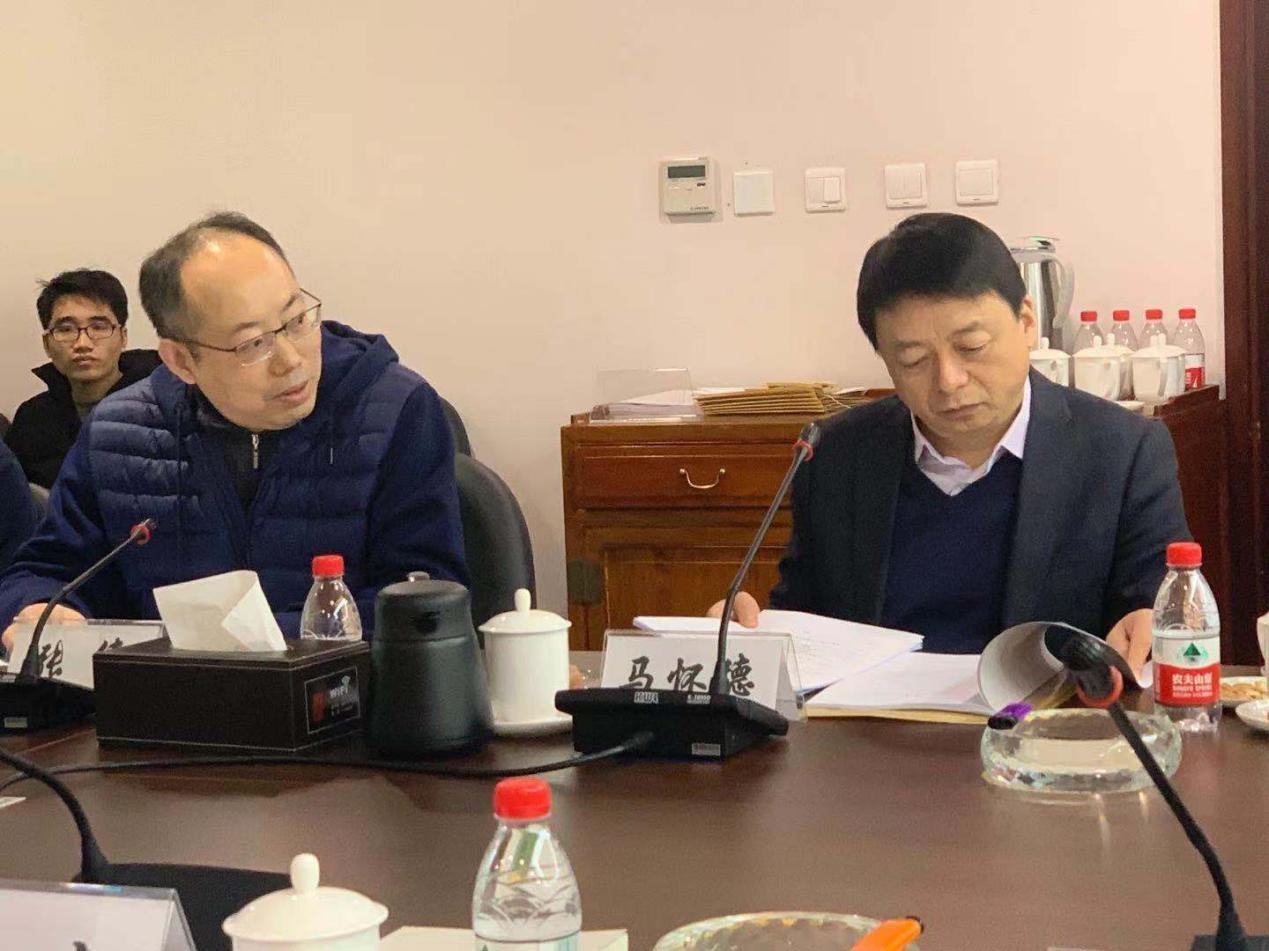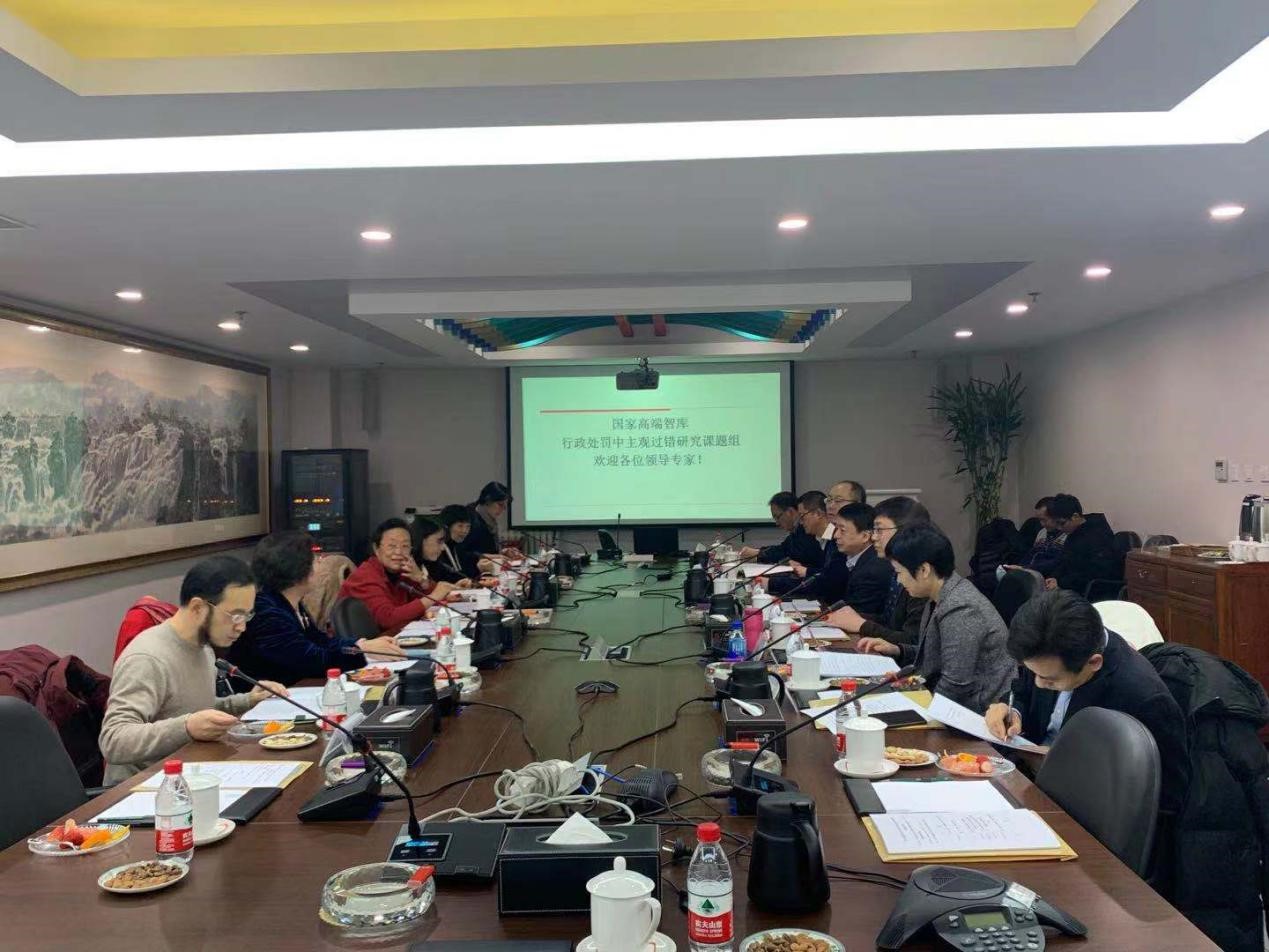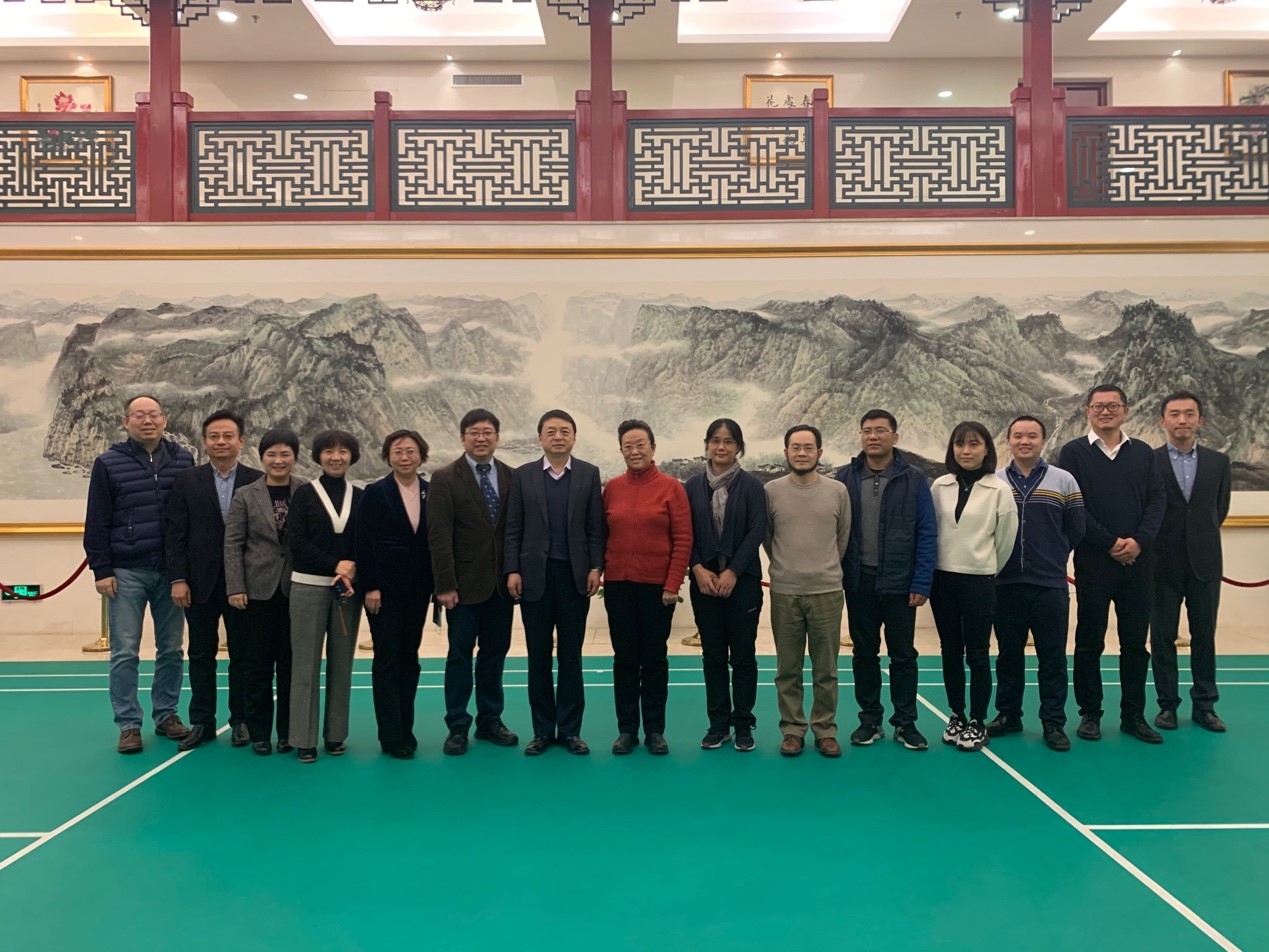On December 27th, the final meeting was held on the subject of "Research on the Elements of Subjective Fault in Administrative Punishment", which was adopted by the Institute of Human Rights (the incubator of the national high-end think tank) and completed by Professor Zhang Qing's group of the Institute of Law and Economics. The research team reported the research results of the subject to the Administrative Law Office of the Legislative Affairs Commission of the Standing Committee of the National People's Congress, which assigned the subject. Yuan Jie, Director of the Administrative Law Office of the Legislative Affairs Commission of the Standing Committee of the National People's Congress, Ma Huaide, President of the University, and several experts attended the meeting. The meeting was chaired by Professor Zhang Wei, Executive Vice President of the Institute of Human Rights of China University of Political Science and Law.

On behalf of the group, Prof. Zhang Qing introduced the research results from the following four aspects: the current controversy in Chinese academia on whether to apply the principle of no-fault no-penalty to administrative punishment, the existing relevant legal provisions, the reference of relevant legislation in typical foreign countries and the legal and economic analysis on whether to apply the principle. The group believes that the latest draft amendment to the Administrative Penalty Law has taken into account the relevant law enforcement costs and efficiency requirements, which is conducive to deciding whether to apply the principle of no-fault no-penalty and the presumption of fault system according to different types of penalties and specific circumstances of cases in practice, and is conducive to achieving the legislative objectives with the minimum social total.

The invited experts, Professor Wang Jingbo, Vice President of the University of International Business and Economics, Professor He Haibo of Tsinghua University School of Law, Researcher Jin Zining of Peking University School of Law, Associate Editor Wu Lei of China Journal of Law, Professor Ma Huaide, President of China University of Political Science and Law, Professor Liu Yi of China University of Political Science and Law Institute of Government by Law, Professor Liu Fei, Dean of China University of Political Science and Law China Europe School of Law, commented on the research results in turn. The experts believe that the topic has important theoretical value and practical significance. Professors Xu Wenming and Zhang Qing, Vice President of the Institute of Law and Economics of China University of Political Science and Law, also responded to the experts' comments and introduced the application value of the research results in practice in conjunction with the sectoral law.

Director Yuan Jie, Director Huang Haihua and Deputy Director Zhang Xiaoying of the Administrative Law Office of the Legislative Affairs Commission of the Standing Committee of the National People's Congress (NPCSC) and other members of the group, as well as experts and scholars, exchanged views on relevant laws and regulations and discussed difficult issues of legislative practice. Director Yuan Jie highly appreciated the research results and expressed his thanks to the experts for their valuable opinions and suggestions, and looked forward to further cooperation with China University of Political Science and Law in the future.
